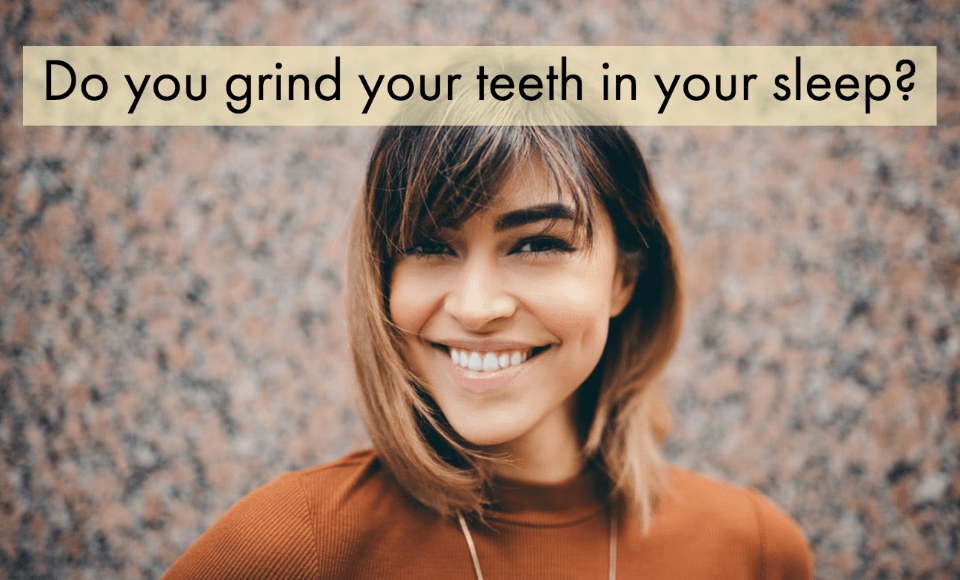Do you grind your teeth in your sleep? How can you possibly tell? After all, you’re asleep when you’re grinding away on your poor chompers, so unless you’re waking yourself up while doing it how would you know?
Actually, there are many tell-tale signs that you may be a teeth grinder without even realizing it so long as you know what you’re looking for. Most often, if you’re grinding your teeth throughout the night there will be some repercussions that you experience in the morning to give your bad night-time habit away.
Does your jaw feel sore and tight when you wake up? Do your teeth feel like they’re in a vise, or like that feeling you get when you have braces tightened? Is your tongue sore, or does your face hurt along the jawline up to your temples? Do you arise feeling like someone may have punched you in the face? If so, it may not be the pillow you keep blaming your discomfort on, it may be your teeth grinding away while you sleep.
Why do people grind their teeth in their sleep? Most usually, stress. If you are stressed your face tenses in your sleep, as does many of the muscles in your body, and you can involuntarily grind your teeth. Or, if you have crooked teeth and they don’t sit right on top of each other when closed, you can grind involuntarily to relieve the tension of closing your teeth.
Since grinding your teeth can cause extensive damage, the tooth wears down, there can be jaw tension, and nerve damage, if you think you are grinding your teeth you need to take action. Visit this TMJ dentist in Gilbert, Arizona if ever you experience jaw pain and want to get it checked immediately. If you don’t sleep alone, ask your partner if they have noticed you grinding your teeth in your sleep. You may hear something like, “Hey, do you know you grind your teeth when you’re sleeping?”
So what do you do about teeth grinding? You can buy a mouth guard. It’s bulky, but it keeps your teeth away from each other. Dentists can send you home with disks, which are more comfortable and less bulky, designed to keep you from grinding all night. You can also try relaxing prior to bed with a calming tea, like peppermint, chamomile, lemon balm, or catnip, to keep your body more at ease while you’re sleeping. Changing sleeping positions doesn’t help to stop grinding, but making your body more comfortable with a comfy pillow and bedding does help the body relax.
The best thing to do if you suspect you grind your teeth is to see your dentist. He can check your teeth for damage and let you know for sure, and treat your condition appropriately. Whatever method you choose to use to manage your teeth grinding, you need to take action for the health of your mouth and surrounding muscles.

